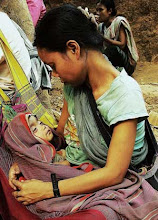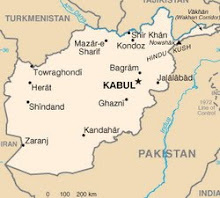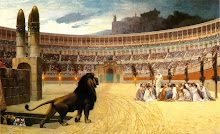 Today's deadly bombing targeting a top Lebanese army general was a bid by anti-government elements to destabilize the country and delay presidential elections and may be part of a general campaign to intimidate Lebanon's Christian population, former Lebanese president Amin Gemayel(picture above left) told WND during an exclusive interview today."While we don't know who specifically carried out the bombing, it was for sure connected to delaying parliament electing a new president, prolonging the political vacuum and creating constitutional and security chaos in the country," said Gemayel, speaking from his home in Lebanon.Today's blast, the latest in a string of political assassinations to rock Lebanon, killed top Lebanese Army Gen. François al-Hajj and his body guard and wounded at least eight others. According to reports, a 77-pound bomb in a parked BMW sedan exploded as al-Hajj drove past on his way to work at the defense ministry in an eastern Beirut neighborhood.Hajj was seen as a leading contender to take over as army chief from Gen. Michel Suleiman should parliament elect Suleiman as president in a much-delayed vote now slated for Monday.Gemayel noted it was "very strange" that today's attack, like so many other recent bombings, occurred in a Christian neighborhood."Maybe this could lead to a situation where Christians feel threatened," he said. "There are some Islamist groups here that would like to target Christians while other Muslims in Lebanon are interested in preserving Lebanon as a country where all communities coexist all together."Gemayel pointed to trends of what he said evidenced Christian persecution throughout the Middle East, including in Egypt, where Christian Copts are regularly singled out and targeted, and in Iraq, where even under U.S. occupation Muslim groups have bombed churches and attacked Christian villages. In 2005 alone, 30,000 Christians fled Iraq, according to survey information.A recent study in Lebanon found 30 percent of the country's Christian population is working actively to emigrate. And according to several reports, nearly 600,000 Christians departed Lebanon the past 16 years.Christians previously made up the majority of Lebanon's population. A 1932 census stated Lebanon was 55 percent Christian. But recent surveys cited by the CIA Factbook state Muslims now constitute a solid majority, with 60 percent.The Shia sect, represented by the Hezbollah militia, is Lebanon's largest Muslim community.Many Christian sects support Lebanon's anti-Syrian politicians, including the Christian Phalangists, considered one of Syria's main political foes in Lebanon. Others, including many Maronite Christians represented by parliament member Michel Aoun, have joined political forces with Hezbollah, Syria's ally.Gemayel served as Lebanon's president from 1982 to 1988 and is still actively involved in Lebanese politics. He is no stranger to political assassinations. He assumed leadership after his brother, Bashir, who had earlier been elected president, was assassinated. Amin Gemayel's son, Pierre, who was a member of parliament, was killed in 2006 in a bombing widely blamed on pro-Syrian forces.Syria occupied Lebanon for nearly 30 years, until mass protests following the assassination of former Lebanese prime minister Rafiq Hariri in 2005 led to the withdrawal of Syrian troops.But since then, Lebanon has been struck by a series of bombings and political assassinations many have attributed to Syria. And Syrian-backed Hezbollah has been using its parliamentary veto power to stall the election of a new Lebanese president after the country's former president, Syria-appointed Emile Lahoud, left office last month.Gemayel would not specifically assign blame to Syria or to pro-Syrian forces for today's bombing. But he told WND he and other anti-Syrian Lebanese politicians live under constant threat."Every Lebanese fears for life, especially those involved on the Christian side and the political side, including the Cedar Revolution leaders, but we refuse to give in to threats. We will prevail," said Gemayel.Today's assassination was the first attack in recent years against a Lebanese army target. The army has been viewed as a neutral institution in a country whose leaders are deeply divided largely along pro-Syrian and anti-Syrian lines.Hajj last summer led a deadly battle against Fatah al-Islam, an Islamic group said to be connected to al-Qaida that lost confrontations against the army.Gemayel told WND he had information that at least one other recent political assassination in a Christian neighborhood was tied to Fatah al-Islam.
Today's deadly bombing targeting a top Lebanese army general was a bid by anti-government elements to destabilize the country and delay presidential elections and may be part of a general campaign to intimidate Lebanon's Christian population, former Lebanese president Amin Gemayel(picture above left) told WND during an exclusive interview today."While we don't know who specifically carried out the bombing, it was for sure connected to delaying parliament electing a new president, prolonging the political vacuum and creating constitutional and security chaos in the country," said Gemayel, speaking from his home in Lebanon.Today's blast, the latest in a string of political assassinations to rock Lebanon, killed top Lebanese Army Gen. François al-Hajj and his body guard and wounded at least eight others. According to reports, a 77-pound bomb in a parked BMW sedan exploded as al-Hajj drove past on his way to work at the defense ministry in an eastern Beirut neighborhood.Hajj was seen as a leading contender to take over as army chief from Gen. Michel Suleiman should parliament elect Suleiman as president in a much-delayed vote now slated for Monday.Gemayel noted it was "very strange" that today's attack, like so many other recent bombings, occurred in a Christian neighborhood."Maybe this could lead to a situation where Christians feel threatened," he said. "There are some Islamist groups here that would like to target Christians while other Muslims in Lebanon are interested in preserving Lebanon as a country where all communities coexist all together."Gemayel pointed to trends of what he said evidenced Christian persecution throughout the Middle East, including in Egypt, where Christian Copts are regularly singled out and targeted, and in Iraq, where even under U.S. occupation Muslim groups have bombed churches and attacked Christian villages. In 2005 alone, 30,000 Christians fled Iraq, according to survey information.A recent study in Lebanon found 30 percent of the country's Christian population is working actively to emigrate. And according to several reports, nearly 600,000 Christians departed Lebanon the past 16 years.Christians previously made up the majority of Lebanon's population. A 1932 census stated Lebanon was 55 percent Christian. But recent surveys cited by the CIA Factbook state Muslims now constitute a solid majority, with 60 percent.The Shia sect, represented by the Hezbollah militia, is Lebanon's largest Muslim community.Many Christian sects support Lebanon's anti-Syrian politicians, including the Christian Phalangists, considered one of Syria's main political foes in Lebanon. Others, including many Maronite Christians represented by parliament member Michel Aoun, have joined political forces with Hezbollah, Syria's ally.Gemayel served as Lebanon's president from 1982 to 1988 and is still actively involved in Lebanese politics. He is no stranger to political assassinations. He assumed leadership after his brother, Bashir, who had earlier been elected president, was assassinated. Amin Gemayel's son, Pierre, who was a member of parliament, was killed in 2006 in a bombing widely blamed on pro-Syrian forces.Syria occupied Lebanon for nearly 30 years, until mass protests following the assassination of former Lebanese prime minister Rafiq Hariri in 2005 led to the withdrawal of Syrian troops.But since then, Lebanon has been struck by a series of bombings and political assassinations many have attributed to Syria. And Syrian-backed Hezbollah has been using its parliamentary veto power to stall the election of a new Lebanese president after the country's former president, Syria-appointed Emile Lahoud, left office last month.Gemayel would not specifically assign blame to Syria or to pro-Syrian forces for today's bombing. But he told WND he and other anti-Syrian Lebanese politicians live under constant threat."Every Lebanese fears for life, especially those involved on the Christian side and the political side, including the Cedar Revolution leaders, but we refuse to give in to threats. We will prevail," said Gemayel.Today's assassination was the first attack in recent years against a Lebanese army target. The army has been viewed as a neutral institution in a country whose leaders are deeply divided largely along pro-Syrian and anti-Syrian lines.Hajj last summer led a deadly battle against Fatah al-Islam, an Islamic group said to be connected to al-Qaida that lost confrontations against the army.Gemayel told WND he had information that at least one other recent political assassination in a Christian neighborhood was tied to Fatah al-Islam.http://www.worldnetdaily.com/news/article.asp?ARTICLE_ID=59172
As in the days of Noah....

























.bmp)
No comments:
Post a Comment